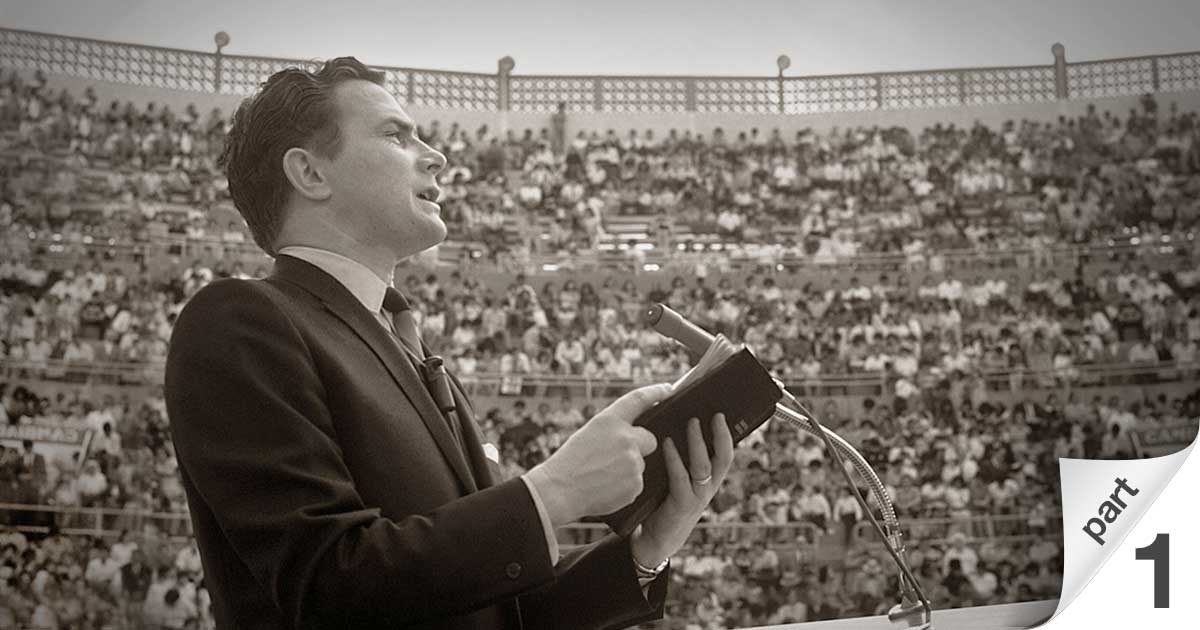I took my son Ryan and one of his friends on a ski trip when they were about twelve years of age. As we rode the gondola to the top of the mountain, I decided to snap the boys' picture with the beautiful scenery visible behind them. While I focused the shot, Ryan began clowning and waving at the camera. Ricky, on the other hand, sat glumly and quietly beside him.
"Come on, Rick!" said Ryan. "Loosen up! Smile for the camera!"
Ricky never changed his expression but simply said dryly, "I'm not that kind of person."
He was right. Ricky is reserved and dignified while Ryan is spontaneous and flamboyant. It's the way they are constructed. In a thousand years of practice Ricky could not be like Ryan, and Ryan would come unstitched if he had to be as controlled as Ricky. It was interesting to see how the boys recognized and accepted their differences in basic temperaments.
A surprising degree of diversity can occur even between children born to the same parents. For example, there were five boys in my father's family. The oldest two were twins who developed into great athletes. One went on to coach football at Byrd High School in Shreveport, Louisiana. The next eldest was Willis, who wore thick glasses and could neither catch nor throw a ball. He earned a Ph.D. in Shakespearean literature at the University of Texas and then taught college English for forty-five years.
The next in line was a gifted businessman who saved part of every dollar he ever earned. He was president of two Coca-Cola bottling plants when he died.
Finally, there was my dad--a sensitive artist by desire and a minister by the calling of God. With the exception of the twins, these brothers could not have been more unique if they had come from four different families. My father didn't even look like his brothers, being 6'4" tall while the others were 5'9" or less. Obviously, God had taken a common genetic pool and fashioned five unique and distinct individuals from it.
Some of my readers might be wondering if we are absolutely sure that my grandfather was really the sire of this crew, but there's no doubt about that. I am reminded, however, of a man who lay dying and called his wife to his bedside. He then turned to her and said, "Mildred, I've always wanted to ask you about the youngest of our twelve children. He just doesn't look like me and I've waited all these years to confront you. Is he really mine?"
"Yes, George, he's yours," said Mildred, "but the other eleven aren't."
That's a terrible joke but it illustrates the diversity of offspring that can come from two fertile parents. It also raises an important question: what happens when you as a mother or father don't like the particular temperament with which your child is equipped? That is a common source of agitation among parents. Though they may never even admit their negative feelings to each other, they struggle with the fact one child is a profound disappointment to them. He is an embarrassment in public and an irritant at home. It may be his extreme shyness that galls them, or his extroverted personality--or maybe his giddiness. Perhaps it is an athletic father with an uncoordinated son, or an overweight mother who desperately wanted, but didn't get, a thin daughter. For whatever reason, they had hoped to see the signs of greatness emerging in this child; instead, he turns out to be an intolerable misfit in the family. What then, my friends? What happens if you are the mother or father who dislikes one or more of your offspring?
Let's acknowledge that some children are easier to love than others. Haven't you heard it said about a particular boy or girl, "That is the sweetest kid I've ever known. I could just hug him to pieces"? We've all seen children like that who naturally attract us to them. But there are other children, millions of them, who lack that natural charm. They push people away from them, including their own families, without even understanding why.
When bonding fails to occur between parents and a particular child, both generations stand to suffer. The mother, especially, is likely to experience great feelings of guilt for her lack of affection for this individual. She recognizes his emotional needs and knows it is her responsibility to meet them, but something inside makes it difficult to respond. Instead, she reacts negatively toward this son or daughter. Ordinary childish behavior that would have been ignored in one of her other kids may bring flashes of anger toward this "problem" individual. Then she experiences more guilt for hurting someone so innocent and vulnerable. It is an emotional pit into which many parents have tumbled.
Such rejection is even more destructive from the child's point of view. Even if he can't explain it, he can feel the wall that separates him from his parents. He is especially sensitive to any preference or bias in favor of his siblings. By comparing himself with them, he gets a clearer picture of his standing in the family. If he concludes he is unloved and hated in that inner circle, his pain may manifest itself in unrestrained rebellion during the adolescent years. I've seen it happen a thousand times.
From Parenting Isn’t For Cowards by Dr. James C. Dobson
Request this resource HERE.












